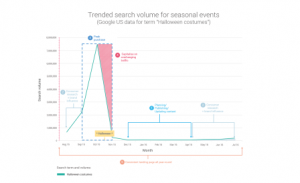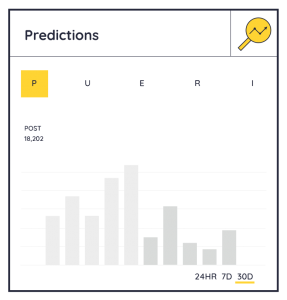It’s so secret that anxiety can be a cause for a job candidate to under perform in any stage of the hiring process. Some candidates feel more comfortable with face-to-face interviews, while others would rather take a hiring assessment because they can be nervous around meeting new people for a potential opportunity. Whatever the situation, you can expect your candidates can and will be nervous at some point during the hiring process. But do those nerves affect their ability to perform in the different stages of the hiring process? And are there other factors coming into play?
In a study published by the International Journal of Selection and Assessment, researchers Justin R. Feeney, Julie M. McCarthy, and Richard Goffin examined candidate anxiety during job interviews. The study, “Applicant Anxiety: Examining the sex-linked anxiety coping theory in job interview contexts” assessed these candidates based on whether or not gender has a role to play in the uneasiness. In addition to the role gender plays in hiring process anxiety, the study also evaluated types of coping mechanisms employed by both males and females when faced with different types of interview anxieties.
- The study was broken up into two smaller studies. The first study “assessed the role of gender in the link between all five interview anxiety dimensions and job interview performance,” essentially evaluating five key types of anxieties commonly seen in interviews and seeing which ones were influential in which gender. These were:
- Appearance Anxiety: The applicant feels nervous about how they look during an interview, keying in on both things the applicant can’t change (for example, insecurities about one’s height), and the things they can’t change (a specific attire they chose to wear may make them appear to be overdressed or under dressed).
- Performance Anxiety: As the name implies, this anxiety has to do with a fear of how well the candidate thinks he or she is doing.
- Social Anxiety: While this term has a much broader definition, in the scope of hiring this type of anxiety has to do with proper social behavior in a business environment – for example, shaking hands properly or matching an interviewers level of formality.
- Behavioral Anxiety: Similar to the physical aspects of social anxiety, behavioral anxiety is the type of actions that the candidate does physically that reflects on him or her. For example, sweaty palms or having a knee that constantly shakes are both examples of behavioral anxiety.
- Communication Anxiety: The applicant is nervous about their ability to communicate on a number of levels – verbal, nonverbal, listening, and body language all fall under communication anxiety.
- Appearance Anxiety: The applicant feels nervous about how they look during an interview, keying in on both things the applicant can’t change (for example, insecurities about one’s height), and the things they can’t change (a specific attire they chose to wear may make them appear to be overdressed or under dressed).
 The first study hypothesized that females will tend to experience higher levels of anxiety in females, specifically for appearance, performance, and social anxiety (behavioral and communication anxieties were noted as challenging to study because it’s hard to find sex-linked behaviors in them, and therefore they were not hypothesized on). The results showed that, while females did experience higher levels of anxiety than in males, females also had better coping mechanisms than males. Additionally, males were linked with “stronger negative relations” in appearance anxiety and social anxiety, in addition to overall anxiety, when it came to interview performance.
The first study hypothesized that females will tend to experience higher levels of anxiety in females, specifically for appearance, performance, and social anxiety (behavioral and communication anxieties were noted as challenging to study because it’s hard to find sex-linked behaviors in them, and therefore they were not hypothesized on). The results showed that, while females did experience higher levels of anxiety than in males, females also had better coping mechanisms than males. Additionally, males were linked with “stronger negative relations” in appearance anxiety and social anxiety, in addition to overall anxiety, when it came to interview performance.
- In other words, while females experienced more anxiety about their performance overall, they still performed almost as if they weren’t nervous at all. However, the more anxious a male was about something, the worse they performed.
- Because females performed better overall despite being more anxious, a second study to understand why females performed as well as they did while being so nervous. The hypothesis was that females performed better because they had higher levels of both “problem and emotion-oriented coping in job interviews” than their male counterparts. Furthermore, the study “males will exhibit significantly higher levels of avoidance-oriented coping” – in other words, males will be better at avoiding the issues, and females will be better at addressing the issues, thus resulting in females performing better in job interviews.
- In order to effectively study these hypotheses, the group employed a questionnaire designed to understand the participants ways of coping. They had 168 participants take on a role as a job applicant “who would have to pass a selection interview to be hired” and then assessed to complete the assessment. The results showed support for both these hypotheses – females had better emotion and problem-oriented coping mechanisms, whereas males had more avoidance-oriented coping mechanisms.
Your candidates will be nervous at some point during the hiring process – whether that be when they sit down with you for an interview, pick up the phone for a phone interview, or take a hiring assessment, your candidates will get anxious at some point. The question is, are they performing up to par even with their anxiety, and can you tell if their answers and results are based on them being anxious or not?
Your best bet is to try and make your candidate comfortable. Follow up on questions in interviews if something seems off, and evaluate their hiring assessment results with the understanding that some may not test well. Also keep in mind that some candidates will have different anxieties beyond the immediate hiring process point – some may be nervous about taking tests, others might be uncomfortable because of their appearance, and others may be insecure because of sweaty hands. These can all be factors in their results, and it’s in your best interest to keep that in mind. After all, even the best get nervous from time to time – it’s only human.
It’s also important to recognize that males tend to struggle more with their anxiety management than females. You’ll have to approach situations differently based on candidate behavior, while understanding that males will be more “dodgy” when they’re nervous, and that can have a huge impact on their results/performance. Keep these things in mind the next time a qualified candidate seems like they may be struggling – it could save the candidate from failing, and save you from missing out on a great candidate.
Business & Finance Articles on Business 2 Community
(49)
Report Post







